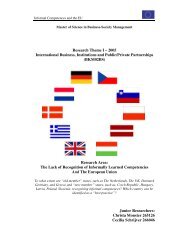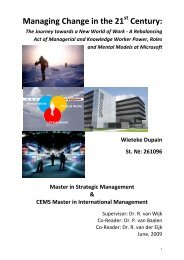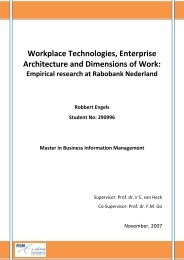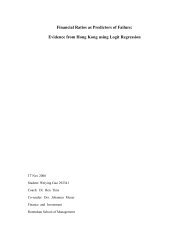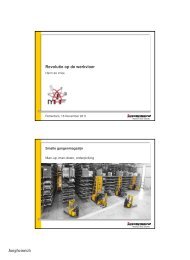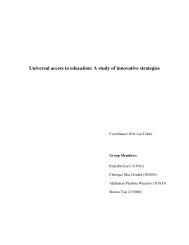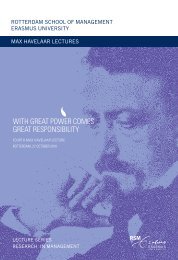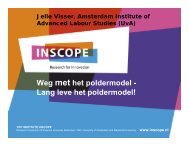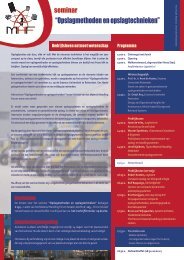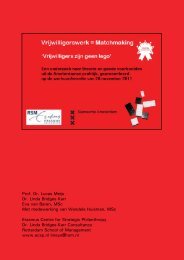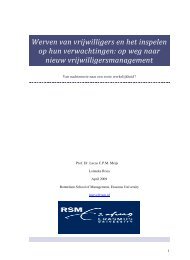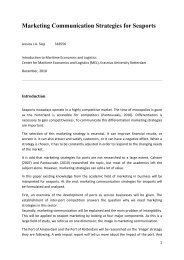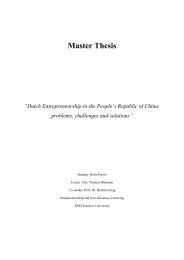here - ERIM - Erasmus Universiteit Rotterdam
here - ERIM - Erasmus Universiteit Rotterdam
here - ERIM - Erasmus Universiteit Rotterdam
You also want an ePaper? Increase the reach of your titles
YUMPU automatically turns print PDFs into web optimized ePapers that Google loves.
A validation Study of House of Quality key performance indicators<br />
vii<br />
Executive Summary<br />
Workforce representative organizations in the Netherlands are witnessing a decline in the number of<br />
memberships for about 10 years. Under influence of ICT, the design of work is changing from a<br />
centralized to a decentralized form. As a result, the function and role of representative organizations,<br />
such as De Unie, are changing as well. In response, representative organizations are searching for,<br />
and experimenting with new service concepts in order to recruit new members and increase the<br />
position of the organization as well as the organization’s cash flow. Under influence of the<br />
aforementioned forces, De Unie started to develop a new union concept that is more responsive to<br />
the members’ contemporary needs. As a result, De Unie recently launched the first online union in<br />
the Netherlands; “De Internetvakbond”.<br />
The current research study serves to improve decision makers’ understanding of the demands of the<br />
members, and offers objective knowledge about the key performance drivers of the online union.<br />
Hence, it will provide De Unie direction to the ongoing process of designing an online union that<br />
adapts to the demands of the changing workforce. By both identification of the most important<br />
needs of the members, by collection of empirical data and; by translating the needs into appropriate<br />
technical requirements.<br />
This research starts with a literature review followed by exploratory research to the needs of the<br />
members and the performance drivers of the online union. The present study applies the SERVQUAL<br />
model to measure the quality of the services offered by the online union. By including Kano’s model<br />
we were able to identify how well the different service attributes of the online union are satisfying<br />
the needs of the members. By integrating the SERVQUAL and Kano model into the concept of the<br />
House of Quality, we were able to translate the needs and requirements of the member into the<br />
design process of the online union.<br />
By exploratory research we identified five dimensions that are considered to determine the overall<br />
performance of the online union; interaction, solidarity, information, safety and interaction.<br />
Statistical analysis merged the dimensions interaction and solidarity and indicated a significant<br />
positive relationship between tangibles and the overall performance of the online union. The House<br />
of Quality indicated Digitalization to be the most important technical requirement in the ongoing<br />
process of improvement and enables the online union to meet the widest collection of members’<br />
needs. Digitalization in this case offers the online union possibilities for value-based pricing of<br />
services, connect different parties in the network and enables interaction between the De Unie, it’s<br />
members and third parties. From this perspective it increases the value of the online union.




